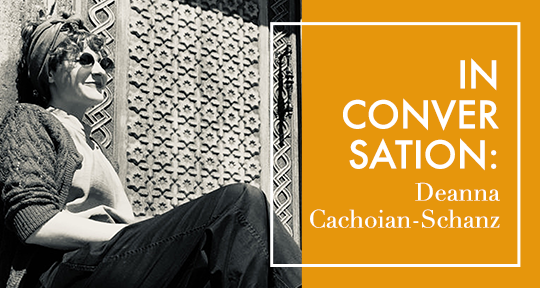Deanna Cachoian-Schanz was awarded one of the prestigious PEN Translates grants earlier this year for her work on Shushan Avagyan’s Girq-anvernakir: a rich, experimental novel that speaks to repressions, literary legacy, and the expansive collisions between disparate writings, voices, times, and lives. Soon to be released as A Book, Untitled through Tilted Axis, Avagyan’s work is emblematic of literature as an act of congregation and communality in giving voice to the silenced, and in this following interview, Cachoian-Schanz speaks on how translation furthers that textual power.
Xiao Yue Shan (XYS): Shushan Avagyan is also a translator; did this affect the way you worked with the text, and were there conversations between you two about how this translation should be approached?
Deanna Cachoian-Schanz (DCS): Of course! As I intimated in the Translator’s Afterword, my translation style tends to keep as close to the text as possible, prioritizing the words on the page and not what I imagine as the “author’s intent.” As Barthes famously declared in 1967, “the author is dead!” However, when working with contemporary literature, the elephant in the room is that the author is still speaking! How can we not, as responsible translators, take the authors’ voices into consideration, especially when they are fluent in the target language?
In the final instances of the English-language text, Shushan and I were in close and caring contact to make the final touches, together. When I first started to translate the book back in 2010, it was a way for me to work on my Armenian—to carefully improve my vocabulary and language skills through a text I was invested in knowing deeply. However, because Book is in part a translator’s diary, sometimes I felt as if the author was already telling me how to translate her work, or even trolling me, her future translator. It’s hard to not take certain lines to heart when you’re that deep into the text; when you’re translating, you really get into that mindset, as if the author is speaking directly to you, for you. Perhaps translation is in part some kind of mania. . . READ MORE…


